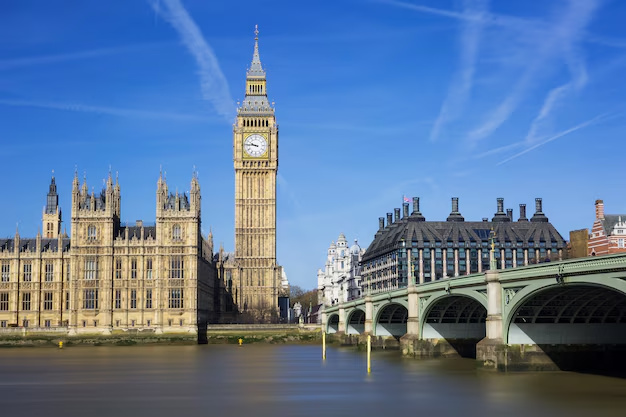The UK government has suspended third-country duty – also known as MFN tariffs on 89 products including household items, construction products and gardening supplies
The UK government has suspended third-country duty – also known as MFN tariffs on 89 products, expressing an ambition that the savings will be passed on to consumers. Whilst timing of the press release appears to coincide with the imposition of 10% US tariffs applied in addition to existing most favoured nation (MFN) rates on most UK exports to the United States, the suspended tariff announcements are the outcome of a 2024 consultation.
Many of the exempted products are household items, including canned pineapple, pasta, fruit juices, coconut oil, agave syrup, plant bulbs, spices, and gardening supplies. Over the next two years, tariff suspensions that have been made available to the construction sector include 0% import duty on plywood and plastics.
Most-Favoured-Nation (MFN) Principle (GATT 1947, Article I)
The General Agreement on Tariffs and Trade (GATT) 1947 is a multilateral treaty that established the underlying framework of the World Trade Organisation (WTO), which harmonises international trade.
The MFN rule located within Article I requires WTO members to extend equal tariff and trade treatment to all other WTO members. Outside the purview of a free trade agreement, if a country lowers a tariff for one member, it must apply the same rate to all others.
In this case, the UK government has extended an MFN tariff of 0% across 89 products, applicable to all trading partners. While the WTO recognises deviations from Article I (such as free trade agreements or measures designed to protect the domestic economy and national security), the issue of whether the US government has violated the MFN principle is an ongoing subject of debate.
Application
The temporary duty suspension will come into effect on 27 April 2025 and remain in effect until July 2027, with the option for the suspension to be extended. A full list of the commodity codes that the duty suspension applied to is available from the following link: 2024 Duty Suspensions to Come into Effect.
Peter Navarro, Trump’s Senior Counsellor for Trade and Manufacturing, writing for the Financial Times, recently critiqued the European Union’s ban on poultry, hormone-treated beef, and genetically modified crops. With a UK-EU reset summit due to take place on 19 May, the United Kingdom has cited mutual recognition of sanitary and phytosanitary (SPS) controls as instrumental to the agenda. Therefore, it is likely that SPS controls within the agri-food sector will remain a key point of contention in US-UK free trade agreement negotiations.
In March 2024, Allianz Trade predicted that the impact of the Border Target Operating Model (BTOM) full SPS controls on EU imports from 30 April 2024 would push UK inflation up by +0.15pp. The US trade administration may interpret the Chancellor’s suspension of UK tariffs as a concession benefiting certain American exports, regardless of establishing a US-UK trade agreement.
UK suspended tariffs
| Product description | MFN rate | New rate |
| Canned Pineapple | 18% | 0% |
| Uncooked Pasta Containing Rice | 6% + £20/100g | 0% |
| Orange Juice with a brix value greater than 20 but lower than 67 | 14% | 0% |
| Refined Coconut Oil | 8% | 0% |
| Blue Weber Agave Syrup | £0.30 / 100 kg per % of sucrose by weight, including other sugars expressed as sucrose (%sacchar.) | 0% |
| Bulbs, tubers, tuberous roots, corms, crowns and rhizomes, dormant, in growth or in flower; chicory plants and roots other than roots of heading 1212. | 0 – 8%* | 0% |
| Crushed or ground pepper of the genus piper nigrum linnaeus. | 4% | 0% |
| Polypropolene (subject to meeting specified criteria) | 6% | 0% |
| Plywood | 6% | 0% |
*Where the existing duty rate is listed as variable, the description has multiple tariff categories.
Source: The UK Global Tariff 2025
Export finance
On 14 April, in a separate press release, Government Steps in to back British Business in a Changing World, Chancellor Rachel Reeves also announced an additional £20 billion of trade finance support for British businesses.
Tim Read, CEO of UK Export Finance (UKEF), said, “UK Export Finance was established over a century ago as a response to trade disruption. Today’s announcement shows how we continue to play a crucial role now, as we did then, in helping exporters to overcome macroeconomic challenges, maintain their competitive advantage and ultimately drive growth around the UK.”
The UK government now has a portfolio limit of up to £80 billion available to support UK businesses through finance. Of this, the UK Export Development Guarantee has designated £10 billion to ensure that in the current shifting geopolitical currents, businesses will have the stability required to thrive. The move is intended to boost the outcomes for British brands such as Rolls Royce, whose luxury vehicles face extended Section 232 tariffs of 25% when entering the United States, a key export market. Small businesses will also be able to access loans of up to £2 million through the Growth Guarantee Scheme.
Conclusion
In a February 2025 forecast, the Bank of England predicted that inflation may rise by up to 3.7% towards the end of 2025. Therefore, minimising tariffs on imports of household goods may mitigate rises in the Consumer Price Index (CPI) concerning other areas, such as higher energy prices. The duty suspension has primarily been actioned as a response to a 2024 stakeholder invitation by the UK government for businesses to request duty relief on certain goods to be used in production, to remain competitive in the global marketplace.
The extended loan capacity of the UK government has been positioned at a time when the government is also conducting an Open Call for Evidence into the reasons why British SMEs do not make optimal use of debt finance facilities. As interest payments on debt are deductible from corporation tax, maintaining a manageable level of debt is considered to be beneficial to capital structure.



